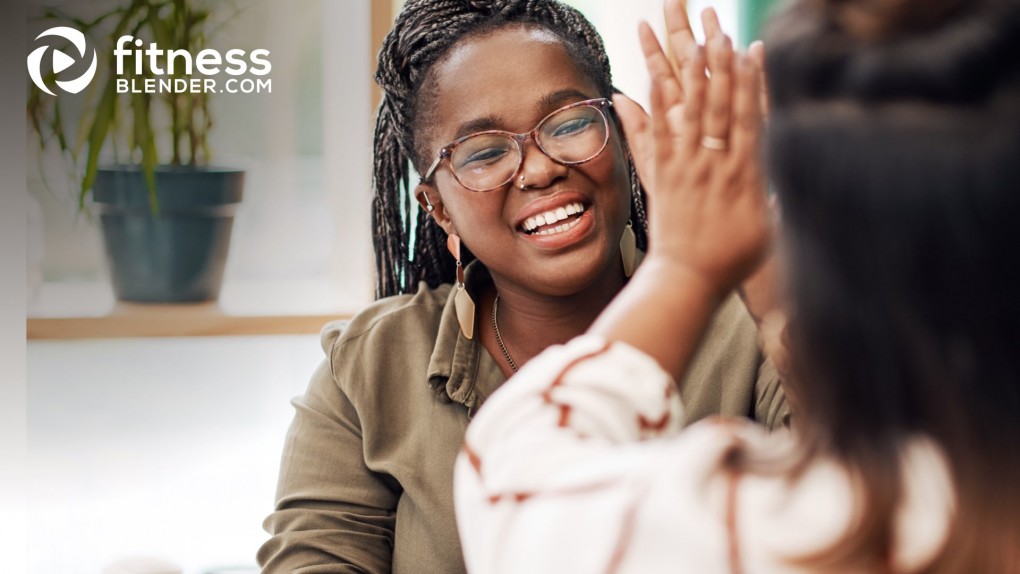How many times do you have kind thoughts about others but don’t tell them? Chances are good that you move throughout your days admiring things about others, but don’t even think to tell them or you are nervous about how they might react if you did. Compliments put us in a vulnerable space as they inherently open us up to rejection or negative reactions. However, when done skillfully, compliments carry a lot of power for both ourselves and the person we are complimenting.
Effects of Compliments
Research shows that compliments increase self-confidence, promote a positive mood, strengthen relationships, and reduce overall levels of stress (Wilhelms, 2013). These positive impacts tend to spread to others due to the self-perpetuating nature of compliments. When a person notices something worthy of complimenting, they form their intention to compliment and say that compliment aloud. For the person receiving the kind words, a compliment often signals that you have noticed something admirable about them and took the time out of your day to share that with them. This then stimulates a second round of compliments. The compliment-giver either doubles-down to reinforce their intention or the recipient feels a desire to return the kind words (Morton et al., 2020). Compliments generally create an environment where this kindness is valued and spreads this positivity in the future.
How to Give a Compliment
Compliments are considered a social skill; however, not just any compliment is going to be well-received. Be sure to consider the context of the compliment. For example, if you are at work, be sure to keep it work-appropriate. Additionally, pause to think about your intentions. Sometimes we give compliments because we want some sort of reaction from the person. If you are aiming to provide comfort, reassurance, or praise - go for it! However, compliments aimed at manipulating or one out of jealousy or spite may not be a good idea, of course. There are several situations in which a compliment generally doesn’t feel so good:
- When there is an expectation for reciprocity (either makes the return compliment less genuine and/or makes it seem desperate)
- When it is not genuine or fake flattery (tone matters here)
- When it is back-handed (“I can’t believe you did so well on that presentation, great job!”)
- When the compliment puts others down (“You’re so much better than your sister at X”)
- When it is directed at someone’s body (we don’t know their relationship with their body, so best not to comment on it)
At the same time, you don’t have to be an “expert” in order to give an effective compliment. Thankfully, compliments are a normal part of the human experience and really help us to build deep relationships. Here are some tips for giving an effective complement:
- Be direct and specific
- Connect the compliment to something you genuinely feel about the person
- Give the compliment as soon as you notice the trait/characteristic/behavior
- Highlight things they chose and/or are proud of themselves
While not foolproof, following these tips will help to promote a positive experience for all involved. I want to caution that it can be particularly important to (a) not have any particular expectation for how the person will respond to the compliment and (b) separate your compliment from the person’s reaction. Many people get uncomfortable with compliments (accepting positivity and praise can be hard!) and will try to avoid it. This doesn’t necessarily mean that it didn’t feel good to them or that you shouldn’t have said it.
Today’s Task
So, today I encourage you to go about your day looking for something you genuinely appreciate in others. We often see what we look for, meaning if we go about looking for the good in people, we will find it. When you notice something and it is appropriate in the local context, share your kind words with that person. Be sure to reflect on the whole experience, noticing the other person’s reaction as well as what it felt like for you to give the compliment.
Written for Fitness Blender by Haley S, PhD
Licensed Psychologist
References
Morton, J. S., Mikolajczak, M., & Luminet, O. (2020). New perspectives on the praise literature: towards a conceptual model of compliment. Current Psychology, 1-13.
Wilhelms, R. (2013). The Power of Compliments: Generating Positive Behavior Changes in Freshmen Students. Recognizing Excellence in Business Education, 61.

